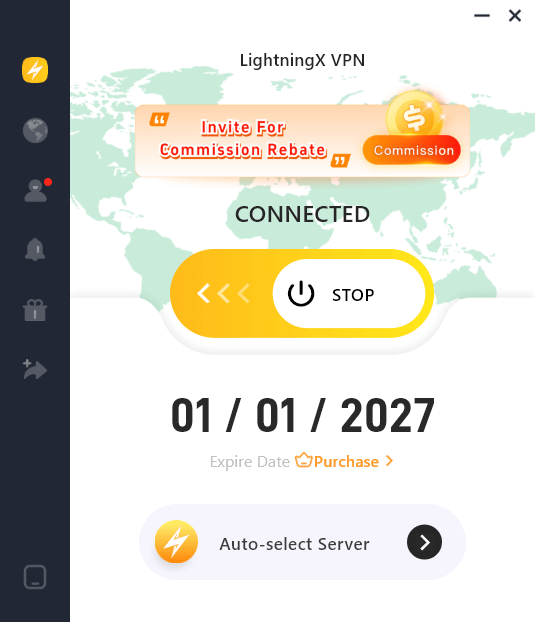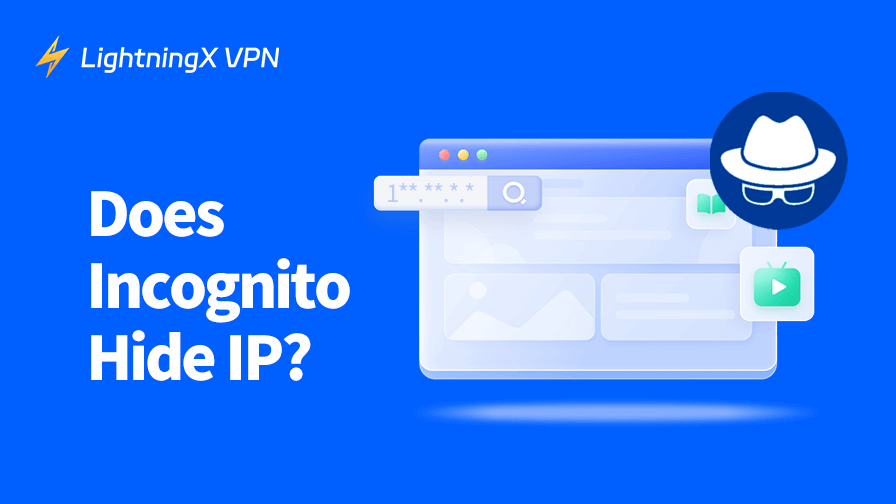Online privacy is important to everyone. You may worry about your personal information being exposed to third parties and use Incognito Mode while browsing online. Does Incognito hide IP address? In this post, we will delve into this subject in detail, explore how Incognito mode works, and examine whether it truly offers the level of privacy that many users expect.
Does Incognito Hide IP Address?
The short answer is no, Incognito mode does not hide your IP address.
Your IP address is like a unique identifier for your device on the internet. Every time you connect to a website or online service, your device uses this IP address to communicate with the server hosting that site. This address can reveal certain information, such as your geographical location, your internet service provider, and even some basic details about your device.
When you’re browsing in regular mode, websites you visit can track your IP address and collect data about your browsing habits.
When you are browsing in Incognito mode, it can prevent your browser from saving local data like cookies and browsing history. However, it does not change your device’s IP address. This means that if you’re accessing a website, that website can still see your real IP address, and your internet service provider (ISP) can still monitor your online activity.
Let’s break down how Incognito works in more detail:
What Incognito Mode Does:
Clear Local Data: In Incognito mode, your browser doesn’t store any information about your browsing history, cookies, or cache. This prevents websites from tracking you with cookies across different sessions.
Useful for Shared Devices: It’s helpful for using a public or shared computer, as it keeps your activity private from other users of that device.
What Incognito Mode Does Not Do:
Hide your IP address: Your IP address is still visible to websites you visit, your ISP, and network administrators.
Prevent Online Tracking: Despite the local privacy benefits, websites and online services can still track your IP address and identify you based on that. Moreover, certain websites might track you through more sophisticated means, such as browser fingerprinting.
Prevent ISP Visibility: Your ISP can still see everything you do online, even if you’re in Incognito mode. ISPs have access to the metadata of your internet traffic, including the websites you visit and the time you spend on them.
Provide Security: It does not protect you from cyber threats like malware or phishing.
Also read: Does Your IP Address Change? Different Scenario Analysis
Incognito Mode Alternatives That Can Hide Your IP Address
If you’re specifically concerned about hiding your IP address while browsing, you may need to use additional tools or services designed to mask or anonymize your online identity. Some of the most effective options include:
Use VPN
A VPN routes your internet traffic through a secure server, effectively masking your real IP address. It encrypts your data, making it more difficult for websites, ISPs, and even hackers to see your online activities.
LightningX VPN is an easy-to-use VPN for Windows, Mac, Android, iOS, Linux, and TV. It also offers VPN extensions for Edge, Chrome, and Firefox. This VPN offers 2000+ servers in 70+ countries. It helps you easily hide your IP address and browse anonymously online. It uses AES-256, WireGuard, Shadowsocks, etc. to encrypt online traffic, and is strictly stick to a no-logs policy. Therefore, your online privacy and security are well protected.
- Download and install LightningX VPN on your computer or mobile device. Run the VPN.
- Click “Start” to fast connect to the VPN or click the “Mode and Locations” icon to select a preferred server to connect.
- Once connected, you get a new IP address, and your real IP address is hidden.

Use Proxy Servers
Like a VPN, a proxy server acts as an intermediary between your device and the internet. While proxies can be less secure than VPNs, they can still hide your real IP address. You may try SmartProxy、Oxylabs、MyPrivateProxy、IPRoyal、Kproxy, etc.
Use Private Browsers
You can also try some free private browsers that are designed to hide IP address and provide anonymity. Some of them can also prevent tracking.
Also read: What Can Someone Do with Your IP Address? Risks Explained
Incognito vs VPN: What’s the Difference?
While Incognito mode focuses on local privacy, VPNs provide privacy on a much larger scale by rerouting your traffic through a remote server, masking your IP address, and encrypting your data. Here’s a comparison:
- Incognito Mode: Local privacy (no browser history, cookies, or cache), but your IP address remains visible to websites and your ISP.
- VPN: Hides your IP address, encrypts your traffic, and provides security on a broader level by masking your internet traffic from websites, ISPs, and even hackers.
When Should You Use Incognito Mode?
Incognito mode is still useful in certain scenarios, even though it does not hide your IP address:
- Avoid Tracking by Websites: If you want to prevent websites from storing cookies or tracking your browsing history during a single session, Incognito mode is helpful.
- Accessing Multiple Accounts: If you need to log into multiple accounts simultaneously (e.g., two different Gmail accounts), Incognito mode can be a handy tool.
- Testing Websites: If you’re an SEO professional or website developer, Incognito mode can help you see your site as a first-time visitor, without the influence of cookies or previous visits.
Conclusion
In conclusion, Incognito mode does not hide your IP address. It offers a certain level of privacy by not saving your browsing history, cookies, or cached files locally, but it does not protect you from IP-based tracking by websites or ISPs. If your primary concern is hiding your IP address or ensuring greater anonymity online, you should consider using a VPN.















